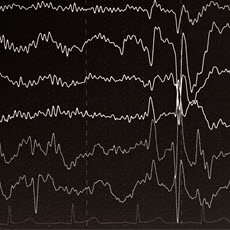
Seizures are symptoms of a brain problem. They happen because of sudden, abnormal electrical activity in the brain. When people think of seizures, they often think of convulsions in which a person's body shakes rapidly and uncontrollably. Not all seizures cause convulsions. There are many types of seizures and some have mild symptoms. Seizures fall into two main groups. Focal seizures, also called partial seizures, happen in just one part of the brain. Generalized seizures are a result of abnormal activity on both sides of the brain.
Most seizures last from 30 seconds to 2 minutes and do not cause lasting harm. However, it is a medical emergency if seizures last longer than 5 minutes or if a person has many seizures and does not wake up between them. Seizures can have many causes, including medicines, high fevers, head injuries and certain diseases. People who have recurring seizures due to a brain disorder have epilepsy.
- Seizures (National Library of Medicine)... recurring seizures due to a brain disorder have epilepsy. NIH: National Institute of Neurological Disorders and Stroke
- Epilepsy is a brain disorder in which a person has repeated seizures over time. A seizure is ... seizure that does not happen again is NOT epilepsy.
- ... Other illness that damages or destroys brain tissue Seizure disorders that run in families (hereditary epilepsy) Epileptic seizures ...
- Epilepsy (National Library of Medicine)Epilepsy is a brain disorder that causes people to have recurring seizures. The seizures happen when clusters ... may have violent muscle spasms or lose consciousness. Epilepsy has many possible causes, including illness, brain injury, ...
- ... swimming instructors, lifeguards, and coaches about your child's seizure disorder. ... chap 611. Pearl PL. Overview of seizures and epilepsy in children. In: Swaiman KF, Ashwal S, Ferriero DM, ...
- Employees with Epilepsy/Seizure Disorder (Office of Disability Employment Policy)Epilepsy/Related Issues ... Epilepsy ... Office of Disability Employment Policy ... Accommodation and Compliance: Epilepsy/Seizure Disorder
- ... febrile seizures plus (GEFS+) is a spectrum of seizure disorders of varying severity. GEFS+ is usually diagnosed in ... and intellectual disability.Some people with GEFS+ have seizure disorders of intermediate severity that may not fit into ...
- The epilepsy-aphasia spectrum is a group of conditions that have overlapping signs and symptoms. A key feature of these conditions is impairment of language ...
- Lafora progressive myoclonus epilepsy is a brain disorder characterized by recurrent seizures (epilepsy) and a decline in intellectual function. The signs and ...
- Progressive myoclonic epilepsy type 1 (also called Unverricht-Lundborg disease or ULD) is a rare inherited form of epilepsy. Early development is normal in affected ...



